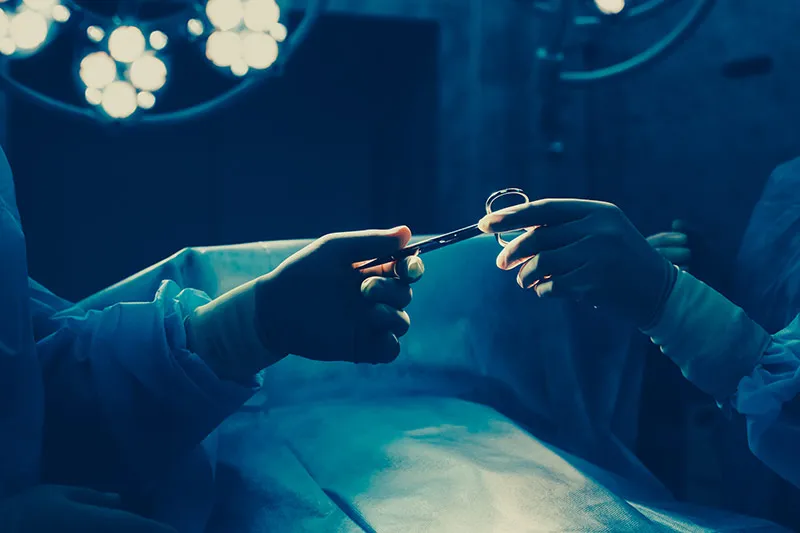Non-Invasive Procedures
Wrinkle Reduction (Botox/Dysport)Face Contouring (Fillers)Hand RestorationHair RestorationLip AugmentationNose Reshaping (Rhinoplasty)Face & Neck Lift TreatmentsFacial Rejuvenation (Aquagold)
Updated: November 30, 2020
If you’re facing a skin cancer diagnosis, especially basal cell carcinomas and squamous cell carcinomas, Mohs Micrographic surgery could be the best treatment for your condition. As a board-certified Mohs surgery specialist in the upper east side of Manhattan, New York, Hooman Khorasani, MD, performs this advanced surgical procedure by removing cancerous tissue one layer at a time until abnormal cells are no longer present in the area. Due to his additional board certifications in cosmetic surgery and facial cosmetic surgery, Dr. Khorasani then expertly closes the cancer-free area and you go home to recover and rest.
This specialized outpatient treatment offers a 99% cure rate — the highest cure rate for skin cancer — while preserving as much of your healthy tissue as possible.
To ensure the greatest success rates for your procedure, Dr. Khorasani and his team provide detailed instructions to help you prepare for your Mohs surgery with him and the recovery.
Dr. Khorasani works with you to identify any medications you’re currently taking that might increase your risk of excessive bleeding during your procedure and should be avoided for a short time. You should avoid these drugs, which may include:
Smoking can also significantly interfere with the healing process, so it’s important to quit for at least two weeks before and after your surgery.
The week before your surgery, you should stop taking vitamins and herbal supplements that can increase your risk of bleeding or raise your blood pressure. These types of over-the-counter supplements often include:
On the day of your surgery, plan on being with Dr. Khorasani and his team for most of the day. Before you arrive, you should eat a hearty breakfast, bathe or shower as usual, and dress in comfortable clothing that’s warm and easy to move around in. If your surgical site is on your face, don’t apply any makeup. You can also take any prescribed medications approved by Dr. Khorasani.
After administering a local anesthetic in the affected area, Dr. Khorasani performs Mohs surgery in stages. First, he removes a thin layer of your skin in the treatment site and examines that skin under a microscope. He repeats this process until your tissue sample doesn’t contain any cancer cells.
This precise approach means that the duration of your Mohs surgery can vary from a few hours to the entire day. To help you pass the time, you should bring different forms of entertainment, such as a book, magazine, laptop, or tablet.
When your skin samples no longer show signs of cancer, Dr. Khorasani closes your surgical site using stitches, a skin flap from the surrounding area, or a skin graft from another part of your body. You can expect your surgical incision or wound to be at least twice as long as your cancerous lesion.
Healing from Mohs surgery can vary from 2-12 weeks depending on Dr. Khorasani’s method of closing your surgical site. After your procedure, Dr. Khorasani provides detailed instructions on caring for your wound and overall health. Following these instructions not only reduces your risk of infection and supports the healing process, but doing so also can minimize scarring.
For the first two weeks after your treatment, it’s essential to avoid strenuous physical activity and heavy lifting. Dr. Khorasani and his team also provide instructions so that you fully understand how to clean your wound, apply antibacterial ointment, and protect it from the sun. You should also abstain from smoking and drinking alcoholic beverages during this time because they can slow down the healing process.
In addition to your surgical wound, it’s also common to experience bruising and swelling following Mohs surgery, especially if you receive treatment on your scalp, forehead, or nose. These symptoms typically fade within 7-14 days and typically ease if you keep the affected area elevated higher than your heart, and by icing the area for the first few hours following your surgery.
To learn more, please visit our Mohs Micrographic surgery page. To request a consultation message us securely, or contact Dr. Khorasani’s Manhattan office by phone at 212-230-3378.

We look forward to meeting you and offering the care and expertise you deserve. To expedite a request for a consultation, message us securely. You may also contact the office by phone at 212-230-3378, or fill out the information below.
